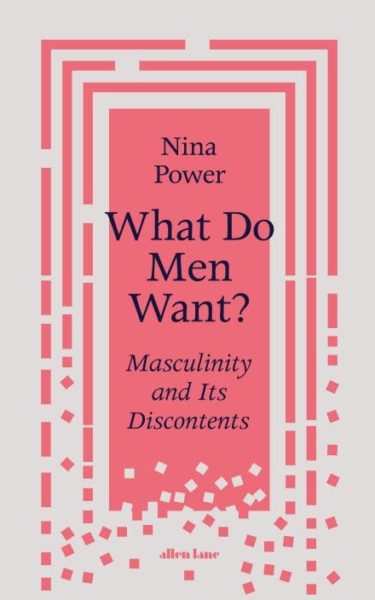Whitehall Moll History Clips
Published 29 May 2019How did Winston Churchill draw on the lessons of his ancestor John Churchill to fight World War II? The Duke of Marlborough’s influence is apparent as Dr David Starkey explains
January 24, 2022
David Starkey – The Churchills episode 3
“Men and woman exist”, opens What Do Men Want?, “Occasionally, we even like each other”
Jarryd Bartle reviews What Do Men Want? by Nina Power:
“Most men are, like most women, a mixture of good and bad, but they are not, as a rule, irredeemable,” Power notes.
Indeed, if there is ever to be a reconciliation between men and women, it may require considering the interests, needs and desires of good men, rather than a laser focus on the bad.
What then, do men want?
When Power asked her male friends this incredibly leading question, the responses ranged from “To be left alone” to “Pussy” to “Beer”. However, the real answer seems to be: something to do.
Power writes, “It is hard to imagine how the role [of men] today could be any more evacuated of meaning or status.”
The old-fashioned role of the Patriarch has been dead for at least one full generation now, and we haven’t really found an adequate replacement. The result is that men are adrift in a state of nihilism. In pop culture men seem to play the role of the “horny jester” to the self-serious goals of feminine social change. But men aren’t just interested in sex and frivolity; they also want a life of meaning.
The consequences of this listlessness are all too evident. Men are vastly overrepresented in statistics on suicide, unemployment, drug overdoses and crime.
Most men aren’t violent, but they are far more violent than women. Women are sometimes the target of this violence, but far more often men take out their pent-up aggression and sadism on other men. Often, we are told to blame these pathologies on “toxic masculinity” — that men need to be liberated from their preferences and to embrace the feminine ideals of tenderness, openness and sociability.
This solution sees sex difference as an irrelevancy, merely a reified founding myth of hegemonic masculinity, perfectly capable of tinkering. For Power, this approach is exceedingly cruel, failing to accept men as embodied creatures with a distinct way of experiencing the world:
To describe masculinity as “toxic” is to suggest that not only have men been poisoned, but that they are extending their poison to the rest of society.
This recent call to feminise men also didn’t occur in a vacuum.
There has been a significant decline in the needs for physical labour in Western countries since the turn of the century. Our increasingly service-oriented, tech-mediated economy requires very different temperaments, often drawing on the feminine virtues of empathic communication.
For Power, these broader structural changes have meant “certain kinds of behaviour come to be rewarded over others”.
Whilst we can’t turn back the clock, this re-evaluation of the role of men in society should be done in a manner which respects the dignity of men as different from woman.
Parker-Hale .303-.22 Conversion Kits for the Enfield, Lewis, and Vickers
Forgotten Weapons
Published 14 Sep 2021http://www.patreon.com/ForgottenWeapons
https://www.floatplane.com/channel/Fo…
Cool Forgotten Weapons merch! http://shop.forgottenweapons.com
In July of 1918, the British military formally adopted a Parker-Hale system of adapting .303-caliber arms to .22 rimfire for short range training. The system involved lining standard barrels with .22 caliber blanks that were machined with full size .303 chambers. Special cartridge inserts were used which had the external dimensions of .303 cartridges, but held .22LR cartridges inside. This allowed the weapon to use the same feeding system as it normally would, and to duplicate the handling and trigger mechanism of a standard .303 caliber gun while only firing a small rimfire cartridge.
Parker-Hale built kits of this type for the Lee Enfield rifle, the Lewis LMG, and the Vickers HMG, and all were used by the British military. In the Lewis and Vickers, there was no accommodation made to actually cycle the guns; this sort of .22 practice drill was done by manually cycling the actions after each shot. Still, it was a good way to practice basic drill (loading, unloading, etc) as well as basic marksmanship without the noise of full power cartridges and without the need for a full-power-rated backstop.
The system for the Lee Enfield was replaced in 1920 (after only about 2 years of use) with the No2 MkIV* rifle, a dedicated .22 conversion of an SMLE. Parker-Hale kept the system in their commercial catalog into the 1930s, however.
Contact:
Forgotten Weapons
6281 N. Oracle 36270
Tucson, AZ 85740
QotD: The Punk-Prog War of 1977
Back in the Silver Jubilee year, 1977, The Sex Pistols were at war with progressive rock. A rather asymmetrical war, for sure, in which only one side probably knew themselves to be engaged, but still. The music press love a feud — what would Britpop have been without the North/South Divide?
The Sex Pistols were angry young men — sois-dissant situationists who hated the dreamy Jung men with their Hipgnosis gatefold album art, their endless concept albums and “song-cycles”, and their am-dram dressing-up box shenanigans. The progs were pretentious and effete and disdained, not only for being able to read music, but for littering their lyrics with symbols from the collective unconscious. It all came from doing too much prep — they were the decadent ancien regime to punk’s snotty sans culottes.
Whether there was any truth to all this didn’t matter much. As mediated by their friends at the NME, the punks despised prog — a genre they regarded as anything but progressive. And Genesis were among the original sinners. True, it was a Pink Floyd t-shirt onto which Johnny Rotten had scrawled “I hate”, an alteration which amounted to all the wit he needed back then to get hired by Malcolm McLaren. But Genesis were the Druidic Lords of the iddly-diddly — the eye-wash and the whimsy that the bin-bag and safety-pin boys and girls found so contemptible.
The Pistols drew as much of their energy from the desire to make overfed rock dinosaurs like Genesis extinct, as they did from making music themselves. They wanted to see the carcasses of these privately educated fops littering the impact crater of punk rock, exposed for the cold blooded, lumbering, vegetative grotesques that they were. The nimble-witted likes of Rotten and Co. pogoed jubilantly on the wreckage of shattered Melotrons and twin-necked Gibsons and their long-overdue graves. Their hour — 1977, year zero — had surely arrived.
Simon Evans, “Rocker Crocked. Pistol Shot.”, Quillette, 2021-10-04.






